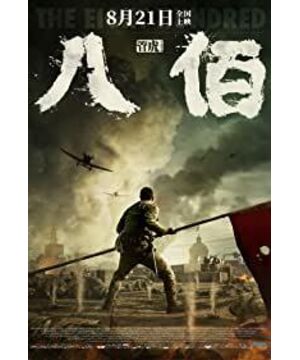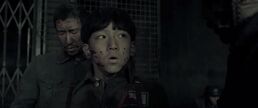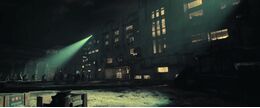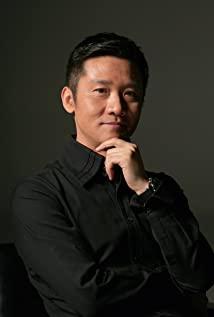"Eight Hundred" is a commercially successful pseudo-anti-Japanese war historical film. The war scenes, actors' acting skills, and emotional rendering are all in place. It is just like the specifications of a war blockbuster. This year's Golden Horse Award for the best film is it! However, after reading it, I always feel that something is wrong! where is wrong? ▲According to historical records, the Japanese army did not use heavy weapons in order not to accidentally injure the neighboring concession, and the battle for a few days was not that heroic at all. Even judging from the war records and casualties of both sides, there may have been only a brief exchange of fire at that time. And the movie shot a scene of a battle of ten thousand people, which is comparable to the Battle of Shangganling! Awesome director! ▲ The Japanese army rushed into the Sixing warehouse at the beginning of the attack. Note that the subtitles such as "Day X" were specially added in the movie. However, the fact is that the positions of the Kuomintang troops stationed at that time were distributed in the dry bridge outside the Sihang Warehouse, the right-wing Tibet Road, and the left-wing Bank of Communications. Only the central position was the Sihang Warehouse, which had a certain depth of defense. It was not until the third day of the battle, on the 28th, that all the troops in the peripheral positions were concentrated in the Sixing warehouse. Perhaps, it would be easier for the director to focus on shooting in one building. ▲ There is also the girl scout Yang Huimin who braved the hail of bullets and swam desperately across the Suzhou River to deliver the national flag and held Ou Hao’s hand. She herself clarified long ago that the flag-sending is true, but the truth is far less exaggerated. The sending of the flag was not spontaneous, but Xie Jinyuan asked the Shanghai Chamber of Commerce to provide grain, oil and salt support and a national flag over the phone. The supply line was carefully planned and relatively safe. The national army received a considerable amount of supplies (also reflected in the movie), and Yang Huimin also entered the warehouse through this line. Even the flag raised on the 29th was not the one sent by Yang Huimin because it was too small. So after that, the Chamber of Commerce sent another two huge national flags through a person named Ye Qingnian, and the passage was even more dangerous. In order to carry out publicity propaganda, the Nationalist government fabricated the story of Yang Huimin crossing the river to send the flag. There were historical reasons for this fabrication back then, but what about now? What about real history? ▲ There is also the part of protecting the national flag, which is obviously almost the same as the "Eight Hundred Heroes" in the film "Eight Hundred Heroes" filmed by the Kuomintang in 1976, but the song "China Must Be Strong" is missing. Taiwanese 6 and 70-year-old Everyone should still remember this song (Youku also has a 1976 version of the movie, you can go and watch it). Why use "also", because Yang Huimin crossing the river to send the flag is also a replica of the plot of this old film, not a historical fact. ▲ There is also the plane that swept the national flag. Let’s not say that the Japanese army did not dispatch the plane at all. Even if it was dispatched, the plane dared to go to the concession area? The pilot must be flooded with water, will he be shot immediately after landing? ? Has the background of preventing accidental injury to the concession all fart? ▲ There are even more gods, the rifle damages the plane, I think of the devil, and the Indian superman who can kill several tanks of the People's Liberation Army in the Indian god movie! I will not comment on how much artistic sublimation has been done here. ▲ When it was discovered that the Japanese army was trying to blow up the northwest outer wall of the warehouse, the method adopted by the defenders at that time was the lighting method. And the kind of suicide attack in the movie that keeps lining up and jumping down like dumplings. . . Anyway, I believed it. ▲ There is also the section where the gang rushes across the bridge to deliver the telephone line. You must know that the Sixing Warehouse was the location of the 88th Division headquarters. According to records, there are at least four telephone lines in it. Do you still need the gang to deliver it? Who is this to beautify? Could it be that this movie still has the investment of the descendants of the youth gang? ▲In addition, there are also deleted plots. The Japanese part played by Ruan Jingtian is also a plot of director art and craftsmanship. Fortunately, it was deleted. ▲ However, I think the plot that should be deleted the most is the part of the national army shooting Japanese prisoners of war. Guan Hu, are you serious? Are you trying to smear the national army or praise the national army? The Republic of China signed the 1929 Geneva Convention! At that time, the Republic of China was fighting a public opinion war with Japan. You did not respect historical facts and had no logic at all! This kind of plot, even if it is not even artistic processing, can only be regarded as nonsense! Do you really have absolutely no concept of history and international politics? ▲ So I can now understand why Guan Hu would visit the son of Sun Yuanliang (a deserter, a rapist, a supporter of Tibetan independence, and slander the Communist Party when he was 100 years old) before the movie was released, and he made it out in a high-profile way. It's really his brainless or ignorant, not intentional (if it was intentional, then I really have to doubt his motive for making this movie, is it like Jet Li's Tibetan One Foundation, trying to penetrate through the entertainment industry? To carry out peaceful evolution of China. And Huayi Brothers has not developed smoothly in recent years, just take advantage of it). ▲In the end, the defenders entered the concession through the garbage bridge of Suzhou River. The scene was so tragic and solemn. Xie Jinyuan's image of not being afraid of sacrifice and loving the army and patriotism is also sublimated at this moment! However, the fact is that the Japanese army was eager for the defenders to retreat into the concession at this time. Did they desperately use firepower to blockade and force the defenders back to the warehouse to stand firm? Able to shoot the retreat to a climax, the director is awesome! War is cruel, and this movie really reflects this. However, war is not mindless, and sensationalism should be stopped in moderation, and facts should be respected. ▲ There are still many slots, such as the German army of the national army actually wearing British National helmets, Japanese cavalry charging on the street, unidentified models of tanks and military vehicles, the big white horse, the negotiation between the officers of the two sides, the unknown comparison with "Changbanpo", and so on. . . . I won't go into details, but these are not the biggest problems. ▲ The really cruel and real aspects of the war are barely mentioned in this movie. At that time, Xie Jinyuan and the remaining troops, who were strongly requested by Chiang Kai-shek to withdraw, retreated into the concession and were placed under house arrest at the request of the Japanese army. Although Chiang Kai-shek verbally praised Xie Jinyuan and his troops, he did not pay attention to his life or death. Two years later, Xie Jinyuan was stabbed to death, and the remaining soldiers were sent to various places by the Japanese army to do hard labor. When the Anti-Japanese War was finally won, there were only more than 100 of these heroes left. For these fighting heroes, this is where the battle is crueler and darker than the battle itself. And the escaped general, Sun Yuanliang, lived to 100 years old and still opposed the Communist Party and national reunification. ▲ At best, this film reflects a short war process in a certain historical period. No matter how tragic the scene is and how emotional the movie is, the darkness behind the war cannot be forgotten. The historical plot of the Eight Hundred Soldiers guarding the Suzhou River is nothing more than a play that Chiang Kai-shek performed in Shanghai in order to gain sympathy on the international stage in disregard of the lives of his soldiers. Afterwards, he ignored the surviving soldiers of the Kuomintang army, courted the foreign powers, and continued to create troubles in the cooperation between the Kuomintang and the Communist Party, which eventually led to the failure of the second Kuomintang-Communist cooperation. ▲ There is no doubt that from the perspective of commercial film shooting, this film is a success. As a fictional war movie, this movie is a masterpiece. However, there is no cause and effect, the art is over-processed, or to put it bluntly, the whole film is full of random fabrications, the gap between the historical facts is too large, and under the guise of recording history and respecting history, it is actually distorting history . If the audience sits in the cinema and really thinks that what they see on the screen is the real history, what is the difference between the revision of history textbooks in Hong Kong and Taiwan? ▲The spirit of the Eight Hundred Heroes deserves our commemoration and respect, but their heroic deeds are only a small fragment of history. I hope the audience can understand the whole picture and basic facts of history before watching this movie. Maybe yours The feeling will be very different! . Although Chiang Kai-shek verbally praised Xie Jinyuan and his troops, he did not pay attention to his life or death. Two years later, Xie Jinyuan was stabbed to death, and the remaining soldiers were sent to various places by the Japanese army to do hard labor. When the Anti-Japanese War was finally won, there were only more than 100 of these heroes left. For these fighting heroes, this is where the battle is crueler and darker than the battle itself. And the escaped general, Sun Yuanliang, lived to 100 years old and still opposed the Communist Party and national reunification. ▲ At best, this film reflects a short war process in a certain historical period. No matter how tragic the scene is and how emotional the movie is, the darkness behind the war cannot be forgotten. The historical plot of the Eight Hundred Soldiers guarding the Suzhou River is nothing more than a play that Chiang Kai-shek performed in Shanghai in order to gain sympathy on the international stage in disregard of the lives of his soldiers. Afterwards, he ignored the surviving soldiers of the Kuomintang army, courted the foreign powers, and continued to create troubles in the cooperation between the Kuomintang and the Communist Party, which eventually led to the failure of the second Kuomintang-Communist cooperation. ▲ There is no doubt that from the perspective of commercial film shooting, this film is a success. As a fictional war movie, this movie is a masterpiece. However, there is no cause and effect, the art is over-processed, or to put it bluntly, the whole film is full of random fabrications, the gap between the historical facts is too large, and under the guise of recording history and respecting history, it is actually distorting history . If the audience sits in the cinema and really thinks that what they see on the screen is the real history, what is the difference between the revision of history textbooks in Hong Kong and Taiwan? ▲The spirit of the Eight Hundred Heroes deserves our commemoration and respect, but their heroic deeds are only a small fragment of history. I hope the audience can understand the whole picture and basic facts of history before watching this movie. Maybe yours The feeling will be very different! . Although Chiang Kai-shek verbally praised Xie Jinyuan and his troops, he did not pay attention to his life or death. Two years later, Xie Jinyuan was stabbed to death, and the remaining soldiers were sent to various places by the Japanese army to do hard labor. When the Anti-Japanese War was finally won, there were only more than 100 of these heroes left. For these fighting heroes, this is where the battle is crueler and darker than the battle itself. And the escaped general, Sun Yuanliang, lived to 100 years old and still opposed the Communist Party and national reunification. ▲ At best, this film reflects a short war process in a certain historical period. No matter how tragic the scene is and how emotional the movie is, the darkness behind the war cannot be forgotten. The historical plot of the Eight Hundred Soldiers guarding the Suzhou River is nothing more than a play that Chiang Kai-shek performed in Shanghai in order to gain sympathy on the international stage in disregard of the lives of his soldiers. Afterwards, he ignored the surviving soldiers of the Kuomintang army, courted the foreign powers, and continued to create troubles in the cooperation between the Kuomintang and the Communist Party, which eventually led to the failure of the second Kuomintang-Communist cooperation. ▲ There is no doubt that from the perspective of commercial film shooting, this film is a success. As a fictional war movie, this movie is a masterpiece. However, there is no cause and effect, the art is over-processed, or to put it bluntly, the whole film is full of random fabrications, the gap between the historical facts is too large, and under the guise of recording history and respecting history, it is actually distorting history . If the audience sits in the cinema and really thinks that what they see on the screen is the real history, what is the difference between the revision of history textbooks in Hong Kong and Taiwan? ▲The spirit of the Eight Hundred Heroes deserves our commemoration and respect, but their heroic deeds are only a small fragment of history. I hope the audience can understand the whole picture and basic facts of history before watching this movie. Maybe yours The feeling will be very different! to fail. ▲ There is no doubt that from the perspective of commercial film shooting, this film is a success. As a fictional war movie, this movie is a masterpiece. However, there is no cause and effect, the art is over-processed, or to put it bluntly, the whole film is full of random fabrications, the gap between the historical facts is too large, and under the guise of recording history and respecting history, it is actually distorting history . If the audience sits in the cinema and really thinks that what they see on the screen is the real history, what is the difference between the revision of history textbooks in Hong Kong and Taiwan? ▲The spirit of the Eight Hundred Heroes deserves our commemoration and respect, but their heroic deeds are only a small fragment of history. I hope the audience can understand the whole picture and basic facts of history before watching this movie. Maybe yours The feeling will be very different! to fail. ▲ There is no doubt that from the perspective of commercial film shooting, this film is a success. As a fictional war movie, this movie is a masterpiece. However, there is no cause and effect, the art is over-processed, or to put it bluntly, the whole film is full of random fabrications, the gap between the historical facts is too large, and under the guise of recording history and respecting history, it is actually distorting history . If the audience sits in the cinema and really thinks that what they see on the screen is the real history, what is the difference between the revision of history textbooks in Hong Kong and Taiwan? ▲The spirit of the Eight Hundred Heroes deserves our commemoration and respect, but their heroic deeds are only a small fragment of history. I hope the audience can understand the whole picture and basic facts of history before watching this movie. Maybe yours The feeling will be very different!
BTW, I think this film can pass the trial, probably because the State Administration of Radio, Film and Television takes into account the pressure to save Huayi Brothers, which is about to go bankrupt, under the epidemic. But I feel that the gains outweigh the losses, so let him leave if he should leave! (by old wolf)
View more about The Eight Hundred reviews











